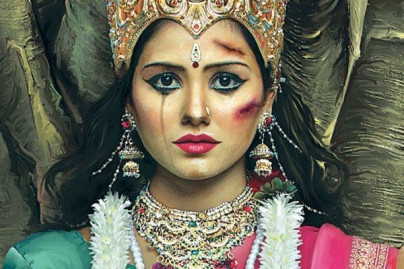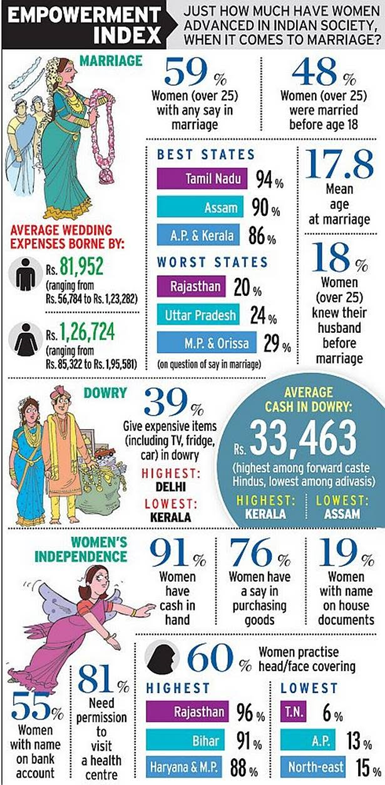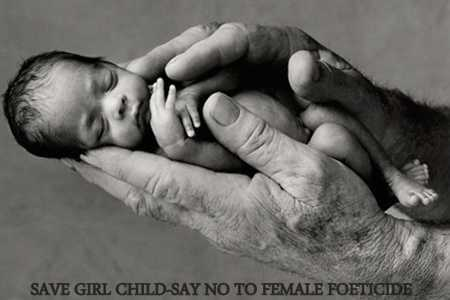Polygamy in Hinduism

Written by Ibn Muhammad
Swami Dayanand Saraswati writes in his books Satyarth Prakash, Chapter 4 and Rigvedadi Bhashya Bhoomika, Chapter ‘on Marriage’,
“One man should have only one wife and one woman only one husband. That is to say, the marriage of one man with many women and of one woman with many men is prohibited.”
He based his claim on the premise that “in the Vedic verses only the singular number is used for the husband or the wife”. This very argument is used by modern Arya Samaj ‘pracharaks’ (preachers). Strangely this argument is coming from that camp who make grand claims of being the true scholars of Sanskrit. They have tried to establish the prohibition of polygamy only on this argument that in the mantras which mention the words husband and wife, they have been used in the singular number. However, the appropriate method of establishing a prohibition is to provide explicit statements containing the prohibition rather than implicit evidence.
If Swami Dayanand and his followers would have followed their own established rules of interpreting Vedas, they would have known that the verbs in the Vedic mantras do not always follow the grammar conventions. An example of this is provided by Swami Dayanand himself in his book Rigvedadi Bhashya Bhoomika as follows:
![]()
“In this (Rigveda 1/162/6) is used the word (He hews) as singular- Although it should have been plural (they hew) because the performer (the hewers) are in the plural.” [Rigvedadi Bhashya Bhoomika, published by agniveer, page 287]
Not only this; Swami ji is even an advocate of interchanging the masculine and feminine words as well as altering the pronouns in a Vedic mantra [Refer to the same Page as above]. Further, on page 292, Swami gives the following example,
![]()
“In this example, (Rigveda 10/85/23) instead of the plural अस , the singular स has been used. Consequently, पन्था has been used which actually should have been पन्थानः“
If the Vedic rules are unreliable to this extent, then why make a fuss if in certain mantras, the words for husband and wife have been used in the singular number while the word husband may stand for all husbands instead of just one person and the word wife stands of all wives instead of just one person? Thus the argument of the Swami turns out to be flimsy. It would have been better if the Swami and Arya Samaj had followed the meanings of the mantras as given by their great scholars and ancestors. But alas, they did not.
Now, let me present before you the scriptural evidences in favour of polygamy and I invite the followers of Swami Dayanand to refute these evidences if they can.
A study of Swami Dayanand’s books reveals that the permission of polygamy is primarily based on the Vedas. For example, Purush Sookta i.e. Yajurveda 31/22 as translated by Swami Dayanand in Rigvedadi Bhashya Bhoomika Page 106 says

“O God! Shri (beauty) and Lakshmi (splendid wealth) serve you like two loving wives.”
Can the followers of Vedic religion as interpreted by Swami Dayanand care to explain the presence of such analogies in the Vedas which undermine their own claims about polygamy? This reference itself proves that had polygamy been prohibited in the Vedic text such analogies would not have been used.
Many mantras in the Rigveda also prove that polygamy is permitted in Vedic religion. Here I will present only a few examples.
Rigveda 1/62/11 says
पतिं न पत्नीरुशतीरुशन्तं सप्र्शन्ति तवा शवसावन्मनीषाः ||
As yearning wives cleave to their yearning husband, so cleave our hymns to you, O Lord most potent.
Rigveda 7/18/2 says
राजेव हि जनिभिः कषेष्येवाव दयुभिरभि विदुष कविः सन |
For like a King among his wives you dwell with your glories, as a Sage, surround and help us.
Rigveda 7/26/3 says
जनीरिव पतिरेकः समानो नि माम्र्जे पुर इन्द्रःसु सर्वाः ||
Indra has taken and possessed all castles, like as one common husband does his spouses.
Shatapath Brahmana, which is the authentic commentary of Shukla (White) Yajurveda and is also considered authentic by Swami Dayanand, also gives permission for polygamy. It is mentioned in Shatapath Brahmana 9/4/1/6
“To the male (deity) he makes offering first, then to the females: he thereby endows the male pre-eminently with power. To a single male he makes offering, and to many females, whence even a single man has many wives. To the male (deity) he makes offering both with the Vashat-call and the Svâhâ-call, to the female (deities) only with the Svâhâ: he thereby endows the male pre-eminently with power.”
Further, Vedas are filled with the detailed mention of the concept of Swarga (Paradise) and the blessings which the dwellers of Paradise would enjoy. According to this Vedic concept, humans who inherit Paradise will enter it with all their organs, inclusing the sexual organs. One particular verse is produced here

“If Agni Jātavedas, as he bore you hence to the Fathers’ world, had left one single limb of your bodies, here do I restore it. Fathers, rejoice in heaven with all your organs!” [Atharvaveda 16:4:64]
So the private organs will be there in Vedic Paradise. Supporing this view Shatpath Brahman Kaand 10, Adhyay 4, Brahaman 4, Kaandika 4 says,
“Wherefore let him who knows this by all means practise austerities; for, indeed, when he who knows this practises austerities, even to (abstention from) sexual intercourse, every (part) of him will share in the world of heaven“
It is clear from these mantras that sexual powers will be present in Vedic Paradise. Now the question is how and for what will these powers be used in Vedic Paradise. Atharvaved 4:34:2 answers this question as,

“Boneless, pure, cleansed with the wind, brilliant, they go to a brilliant world. The fire does not burn their male organ. In Swarga they get plenty of women.” [Atharvaved 4:34:2]
This mantra strikes a death blow to all those so-called Brahmacharis who sweat at the mere mention of women in Paradise, fearing that this will violate their Dharma. Vedas reject such apprehensions. There will not be just one, but numerous women to fulfill the desire of sex. In this mantra, the word Strenam (सत्रैणम) is used which means ‘a collection of women‘. This is the meaning given by the ancient Indian Grammarian Panini in his book Ashtadhyayi – Adhyay 4; Paad 1; Sootr 87. Lest any Arya Samji tries to do some word gymnastics as they are so renowned for, we have given this source. Also the word Shishan (शिशन) used in this mantra only means ‘phallus’ according to Nirukt 4:19.
These mantras reveal that one man will get plenty of women in Vedic Paradise and it has been described as a great pleasure. This undoubtedly proves that polygamy is not a bad practice according to Vedas.
Swami Dayanand also in his Yajurveda Bhashya of 28/32 gives the following advice to Vedic followers:

“Like a bull impregnates the cows thus increasing the cattle, men also should imprenate women to increase the population.”
This means like one bull impregnates many cows to produce more cattle, similarly, a Vedic man should impregnate many women regardless of their number to increase the population of Vedic followers. This analogy also proves that polygamy is permitted in the Vedic religion.
Further, Manu Smriti Chapter 7, shloka 221 says,
![]()
When he (the King) has dined, he may divert himself with his wives; but when he has diverted himself, he must, in due time, again think of the affairs of state.
Manu Smriti chapter 9, shloka 149 gives directions about the distribution of property among the sons of a Brahmin from his four wives. In fact the Maharishi Manu himself has 10 wives as is mentioned in another Shamhita (version) of Yajurveda, Maitrayani Samhita 1/5/8.
Following is the practical manifestation of the above mentioned scriptural permission regarding polygamy, by the great ancestor of the Vedic people:
The great Rishi of Shatapath Brahman, Yajnavalkya, practiced polygamy and had two wives namely ‘Maiteryi‘ and ‘Katyayani‘. This is mentioned in Brihadaranyak Upanishad 4/5/1.
अथ ह याज्ञवल्क्यस्य द्वे भार्ये बभूवतुर्मैत्रेयी च कात्यायनी च
“Yajnavalkya had two wives: Maitreyi and Katyayani”
As per the belief of Aryas. Rishi Yajnavalkya was a true devotee of Ishwara. On top of it he was a Rishi, which means an expert in all the sciences and thereby a teacher. Had polygamy been prohibited by the Vedic religion, then Rishi Yajnavalkya would not have practiced it and if polygamy be a sin and an evil deed then he is disqualified from the position of a Rishi. Rishi Yajnavalkya was present in the times when Vedic civilization was at its zenith. So his action directly gives proof of polygamy being Vedic.
Another great icon of Hindus, Sri Krishna, had eight principle wives, which is accepted by all Hindu scholars. They were Rukmini, Satyabhama, Jambavati, Satya, Lakshmana, Kalindi, Bhadra, Mitravinda. He further married 16,100 women whom he rescued from Narakasur as is clearly mentioned in the Anushana Prav of Mahabharata. The Pandavas also had many wives besides Draupadi who was their common wife (polyandry).
Modern Arya ‘pracharaks’ and Veda thumpers, try to claim that thse references are not accurate but interpolations. However, they present no credible evidences to back up this claim. I have already proved in my articles [1] [2] that Vedas too have been corrupted. Therefore, if they want to call Mahabharata as adulterated text, then they would have to give up Vedas as well, which leaves them with nothing. Further, their own Guru, Swami Dayanand derived the support for the Vedic concept of Niyog from the same Mahabharata [Refer to this article].
All the above evidences prove that Vedic religion does not prohibit Polygamy and the great icons of Vedic religion practiced polygamy perfectly according to the teachings of Vedic religion. Those who claim that Vedic religion/Hinduism prohibits polygamy have no proper evidence.


